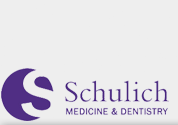Case Synopsis
The Syrian Civil War has displaced 6.5 million people internally within Syria (UNHCR, 2016) and has led 5 million to flee the country and live as refugees in Turkey, Egypt, Iraq, Jordan, Lebanon, and other North African countries (UNHCR, 2017). In 2015, the Canadian government and Canadian citizens stepped in with a nationwide commitment to resettle 25,000 Syrian refugees. Due to community-based rallying, the commitment expanded to a total of 40,000 Syrian refugees by mid-2017 (Government of Canada, 2017). In response to this urgent and unprecedented arrival of refugees, hundreds of community agencies and many community groups across Canada banded together to provide services and supports to Syrian families (Hansen & Huston, 2016; Access Alliance Multicultural Health and Community Services, 2017).
Various sectors were represented in this effort: healthcare, settlement, community and nonprofit, housing, education, government, language, sponsor groups, children’s services, community and civic participation, police and safety, faith-based organizations, research, employment, and food assistance. Among organizations that represented these sectors, Access for Health and Settlement Centre was a community health centre that situated itself in a temporary accommodation site, serving primary health care, interpretation, and other community services (Access Alliance Multicultural Health and Community Services, 2017).
Through this effort, Dr. Zola Faraji, a senior scientist at Access for Health and Settlement Centre, and his community-based research team began to recognize the importance of documenting the manner in which the response was unfolding around them within the Greater Toronto Area (GTA). Zola knew that upon the government’s announcement to resettle so many Syrian refugees in Canada, none of the sectors and agencies who were to participate were adequately prepared to coordinate a response that matched the urgency of the situation. However, the response had been a remarkable one but not without its successes and challenges. Therefore, Zola conducted an environmental scan to document how service provider agencies within the GTA planned and delivered health, settlement, and other services for a large number of refugee families within a short period of time through a cross-sector perspective (Access Alliance Multicultural Health and Community Services, 2017). The study findings captured key successes and challenges that informed the development of best practices for refugee health and resettlement services, particularly in relation to future large-scale arrivals of refugees.
Now, Zola and her team are at a crossroad. They possess vital research findings and must develop recommendations as well as relationships with key players across various involved sectors. The team is developing a knowledge translation strategy. How can Zola and her team develop and implement a strategy that ensures that knowledge is not only shared but implemented into action? How can this research be utilized in a knowledge-to-action framework to benefit these vulnerable populations in the future?
Case Objectives
- Understand the importance of evaluating services to identify gaps, leading to the development of, or investigation for, evidence-based recommendations to implement improvements.
- Demonstrate the importance of sharing knowledge and research – internally and/or externally – to facilitate the process of best-practice implementation within an organization, within a sector, or cross-sectorally.
- Design innovative tools and strategies through which knowledge translation goes beyond sharing information but rather builds capacity for action.
- Coordinate important collaborations and relationship-building opportunities in the process of implementing successful knowledge-to-action initiatives.
- Evaluate public health’s current limitations and responsibilities to mobilize organization and system-level changes through knowledge translation and to protect and promote the health of vulnerable populations.
Case Study Questions
- Why was it important for Access for Health and Settlement Centre to launch a research project to uncover lessons learned in relation to the Syrian refugee response?
- What were some of the incentives for Zola and her team at Access for Health and Settlement Centre to collect and share information beyond their organization?
- What avenues did Access for Health and Settlement Centre consider in terms of knowledge and information sharing? What other innovative avenues should they consider?
- What is the difference between simply sharing knowledge and sharing knowledge for the purpose of action or change? What is the significance in the difference?
- How should Access for Health and Settlement Centre use their recent research and relationships to build capacity and enable systems-level change to be implemented crosssectorally— for example, what are some of ingredients that have to be considered to do this successfully?
- What are some of public health organizations limitations when it comes implementing effective knowledge translation initiatives?
- How do public health professionals become advocates and build interest in knowledge translation and mobilization? How do public health professionals build competencies in knowledge translation and mobilization?
- Is it public health’s responsibility to translate research into tools or methods that facilitate positive changes to services, the healthcare system, and society at large? What role does public health need to take?
- What are some of the potential impacts of a best practice knowledge-to-action model on for future refugee surges? How can such a model aid the coordination of services within the healthcare sector and other related sectors?
Keywords
refugee health, refugee settlement, knowledge translation, knowledge mobilization, knowledge exchange, integrated knowledge mobilization, implementation science, Syrian refugee response, best practices, evidence-based, managing health services
ISBN
978-0-7714-3111-1
Recommended Citation
Benlamri, M., Shakya, PhD, Y., Sibbald, S.L. (2018). Mobilizing Knowledge into Action: Best Practices in Responding to Urgent Refugee Health and Resettlement Service Needs. in: McKinley, G. & Sibbald, S.L. [eds] Western Public Health Casebook 2018. London, ON: Public Health Casebook Publishing.


